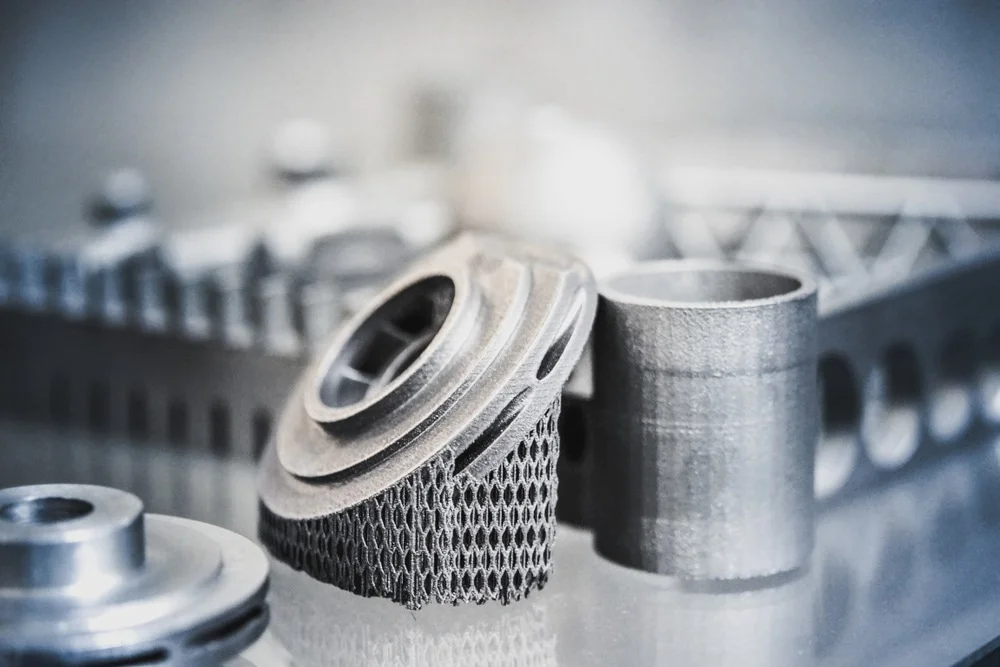ISO 18755 Specific Heat by Laser Flash at High Temperatures
The ISO 18755 standard provides a precise method for measuring the specific heat capacity of materials through laser flash analysis (LFA) under high-temperature conditions. This service is particularly valuable in sectors such as aerospace, automotive, and power generation where material integrity at elevated temperatures is critical.
Specific heat by LFA at high temperatures involves exposing a small cylindrical specimen to a short pulse of intense laser light. The subsequent rise in temperature is monitored using an optical sensor, providing data on the thermal diffusivity of the sample. From this information and known physical constants, the specific heat capacity can be accurately calculated.
The process begins with thorough preparation of the material specimen, ensuring it meets the required dimensions for accurate testing. The test environment must also meet stringent temperature control criteria to ensure repeatability and accuracy. Our laboratory adheres strictly to ISO 18755 guidelines to deliver reliable results that are essential for compliance with international standards.
The importance of this service cannot be overstated, especially in industries where material failure at high temperatures can lead to catastrophic consequences. By providing accurate specific heat data under these conditions, we enable our clients to make informed decisions about their materials' suitability and durability.
For quality managers and R&D engineers, understanding the thermal properties of materials is crucial for product development and lifecycle management. This service offers insights into how materials behave at high temperatures, which is essential for optimizing performance and ensuring safety. Compliance officers will appreciate the ability to verify compliance with international standards like ISO 18755, ensuring that products meet regulatory requirements.
| Aspect | Description |
|---|---|
| Laser Flash Analysis | The method uses a short laser pulse to heat the specimen, monitoring temperature rise with an optical sensor. |
| Material Preparation | Specimens are prepared to standard dimensions and cleaned before testing. |
| Temperature Control | The test environment maintains precise temperature control to ensure accurate measurements. |
Scope and Methodology
- Laser Flash Analysis: Utilizes a short laser pulse to heat the specimen, followed by monitoring temperature rise.
- Material Preparation: Specimens are prepared to standard dimensions with careful cleaning.
- Temperature Control: The test environment maintains precise control over temperatures.
The ISO 18755 standard ensures that the specific heat data obtained is accurate and reliable. This method is particularly useful for materials that experience high-temperature conditions, such as aerospace components or engine parts in automotive applications.
| Application | Description |
|---|---|
| Aerospace Components | Evaluating the durability of materials under high-temperature conditions for engine parts. |
| Automotive Parts | Assessing the performance of components in high-temperature environments, such as exhaust systems. |
| Power Generation Equipment | Determining the suitability of materials for turbines and boilers under high-pressure conditions. |
Quality and Reliability Assurance
- Standard Compliance: Our laboratory adheres strictly to ISO 18755 for all testing.
- Data Precision: Rigorous calibration of equipment ensures accurate measurements.
- Environmental Controls: Temperature and humidity are meticulously controlled during tests.
The reliability of the results is ensured through stringent quality control measures. Each test is conducted under conditions that replicate real-world scenarios, ensuring that the specific heat data provided is both accurate and actionable.
Use Cases and Application Examples
- Aerospace Components: Assessing materials for engine parts under high-temperature conditions.
- Automotive Parts: Evaluating exhaust system components in high-temperature environments.
- Power Generation Equipment: Determining the suitability of materials for turbines and boilers.
This service is indispensable for industries where material performance at high temperatures significantly impacts product reliability and safety. By leveraging ISO 18755, our clients can ensure that their materials meet the highest standards of quality and durability.





